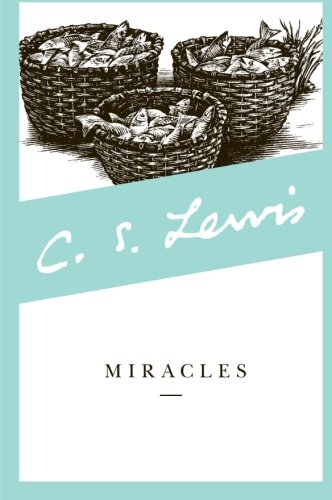Editor’s Note: As we mentioned recently, some have requested that along with newer titles we routinely summarize we might also summarize some of the more notable books from previous generations. C.S. Lewis is ever popular, and we were not surprised to hear his works suggested. Today we offer an excellent summary of his important and popular apologetic work, Miracles.
About the Author
C. S. Lewis was one of the most influential writers of Christian literature in the 20th Century. His works sell more copies today than ever before. Lewis’ writings range from technical academic works (his works on medieval English literature are still considered magisterial), to popular apologetics, to children’s literature, and more.
Overview
This book explores the philosophical and theological issues that surround the subject of miracles. Lewis looks at the relationship between worldviews, probability, history, science, and theology. He examines different conceptions of “Nature” and reveals how our assumptions have created misunderstandings about the miraculous. He also points out numerous missteps, logical fallacies, and unwarranted presuppositions that keep people from believing in miracles. Since the miracles in the Bible have a particular context, Lewis seeks to demonstrate why the biblical accounts are coherent, and why we should accept them. He then sketches their significance, and discusses how they point ahead to the glory of a New Nature that God is making.
Table of Contents
Chapter 1 The Scope of this Book
Chapter 2 The Naturalist and the Supernaturalist
Chapter 3 The Cardinal Difficulty of Naturalism
Chapter 4 Nature and Supernature
Chapter 5 A Further Difficulty in Naturalism
Chapter 6 Answer to Misgivings
Chapter 7 A Chapter of Red Herrings
Chapter 8 Miracles and the Laws of Nature
Chapter 9 A Chapter Not Strictly Necessary
Chapter 10 “Horrid Red Things”
Chapter 11 Christianity and “Religion”
Chapter 12 The Propriety of Miracles
Chapter 13 On Probability
Chapter 14 The Grand Miracle
Chapter 15 Miracles of the Old Creation
Chapter 16 Miracles of the New Creation
Appendix A: On the Words “Spirit” and “Spiritual”
Appendix B: On “Special Providence”
Summary
Chapters 1 & 2
Every event that we might interpret as a miracle is an event that is perceived through our senses. We know, however, that our senses are not infallible—our senses can play tricks on us and we can be fooled by illusions. The way that we interpret our experiences depends on our philosophy. Some people believe that we can determine—using normal standards of historical investigation—that miracles have happened in history. These standards, however, cannot prove whether or not miracles are possible in the first place. We must think through the philosophical issue before turning to the historical. Certain critics deny that predictive prophecy is possible, so whenever they read the Bible they say that the books that contain predictions were written after the events took place. If a person doesn’t know if predictions are possible, pointing them to a text where a prediction allegedly occurs will not solve the problem for them.
“I use the word Miracle to mean an interference with Nature by supernatural power.” Naturalists believe that Nature is all there is, so there is nothing outside of Nature that can interfere with it. Supernaturalists believe there is something more than Nature. The first task is to determine which position is right. Naturalists believe that everything simply exists and is going on of its own accord. Everything that happens is determined and there is no free will. The entire system—which consists of everything—exists as a brute fact. Supernaturalists believe that reality must be divided into two camps: the great, self-existing Fact is the supernatural, and everything else is what he has made. This book will refer to the self-existent reality as God, and will assume monotheism. Naturalists see Nature as an unfolding, united process that exists on its own, whereas supernaturalists believe that the space-time universe has been created. If the supernaturalists are right, then God could possibly interfere with the natural system he created. This doesn’t mean that he does or that miracles have happened, but miracles become a philosophical possibility. In naturalism, miracles must be considered impossible….
[To continue reading this summary, please see below....]
The remainder of this article is premium content. Become a member to continue reading.
Already have an account? Sign In
